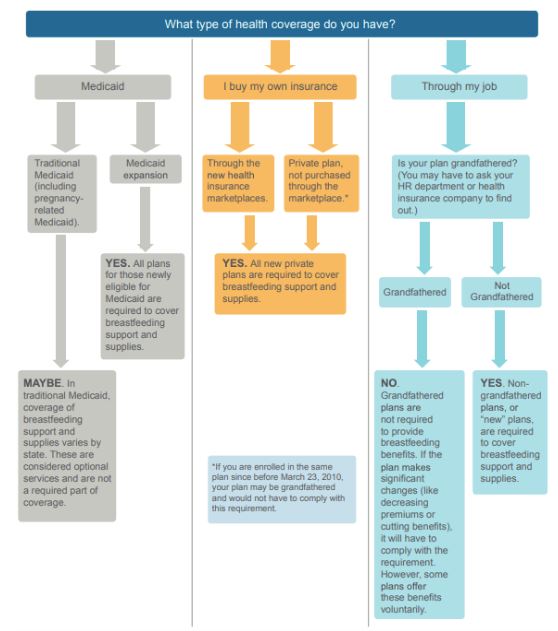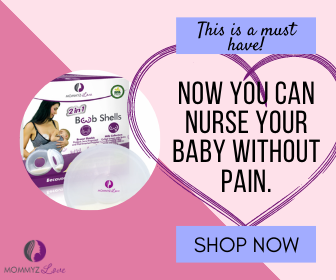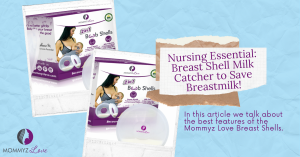Over the past decade with its increasing popularity, the advocacy for breastfeeding has now become a powerful movement. And with the World Health Organization (WHO) and UNICEF strongly recommending exclusively breastfeeding for the first six months and then complemented along with solid foods for up to two years, more mothers and health providers are making breastfeeding their topmost priority.
The Patient Protection and Affordable Care Act (PPACA) aims to make breastfeeding more affordable and accessible to all American mothers. Learn more about the PPACA coverage for breastfeeding moms, the benefits you can get, and the laws that protect your right to breastfeed.
UPDATE:
This article has been updated to reflect corrections on the name of the Affordable Health Care Act (AHCA) which should be named the Patient Protection and Affordable Care Act (PPACA). As of 2019, the Patient Protection and Affordable Care Act (PPACA) is still the federal enacted comprehensive health reform law that issued new rules and guidelines on the offering, administration, and acceptance of healthcare coverage in the United States.
Story Time
“It wasn’t until a few weeks after I had Samuel that I realized that I was entitled through the Affordable Health Care Act to get a free breast pump. That is just one benefit. In fact, I learned that each insurance company has its own maternity and breastfeeding benefits such as breastfeeding consultations with an IBCLC, or breastfeeding accessories and supplies.
“I would always advise calling your insurance company as well as your local hospitals to see what breastfeeding benefits they can offer or you can apply for, you will be surprised that quite often there are many things you can take advantage of.”
In A Nutshell…
- The Patient Protection and Affordable Care Act (PPACA) provides benefits for breastfeeding moms by requiring health care insurance to cover breastfeeding support and services.
- Each health care plan under the PPACA is required to give breastfeeding support and service benefits. However, those existing before the legislation of PPACA may not be eligible to be covered. Consult your health insurance providers for your coverage as a breastfeeding mom.
- The PPACA also protects the rights of breastfeeding moms by allowing reasonable break time for nursing mothers, giving breastfeeding support under the Prevention and Public Health Fund, and including breastfeeding support under Preventive Service.
- The repeals on the PPACA may have an impact on breastfeeding moms in the future. At present, breastfeeding moms can still avail of breastfeeding support and services.
- In addition, the Women, Infant, and Children (WIC) program and the different breastfeeding laws implemented in each state helps promote and encourage breastfeeding to every American mom.
Breastfeeding in the USA
The Center for Disease Control (CDC) under the Healthy People 2020 Initiative has a goal of increasing the percentage of breastfeeding American mothers to 81.9%. Currently, over 29 states are reaching their breastfeeding goals.
Although the statistics are motivating, when it comes to breastfeeding duration, most mothers don’t get to breastfeed as long as 6 months. Only 5.8% of women get to do exclusive breastfeeding and only 30.7% are able to breastfeed up to a year.
The data shows that although most moms are determined to breastfeed, many fall short to committing to it long-term. One factor that may have contributed to this is the fact that most breastfeeding women lack the support they need from health care providers, employers, and family members.
Understanding the Patient Protection and Affordable Care Act (PPACA) Coverage for Breastfeeding Moms

All experts can agree that breastfeeding provides benefits for both mother and child. Although breastfeeding is a natural and biological process, more often than not, it can also become a challenge for many moms. Breastfeeding women still need proper knowledge and ample support to have successful breastfeeding journeys.
Legislated during the Obama administration, The Affordable Health Care Act is a law that requires all health plans to provide certain preventive services without cost-sharing. Included in these services are breastfeeding support and supplies. Thus, the health care act makes breastfeeding more available and economical to all American mothers by covering breastfeeding supplies and giving lactation support and counseling without co-insurance, co-payments, and deductibles.
PPACA Breastfeeding Coverage Plans
Your Insurance Must Cover Women’s Preventive Services
The PPACA requires most insurance plans to offer an array of preventive services that are important to women. The list of services was established by the Institute of Medicine and endorsed by the Health Resources Services Administration (HRSA). These include:
- Breastfeeding support, supplies, and counseling
- Screening for gestational diabetes
- Screening and counseling for interpersonal and domestic violence
- DNA testing for high-strain risk of HPV
- Counseling on sexually transmitted infections, including HIV
- Screening for HIV
- Contraceptive methods and counseling
- Well-woman visits
Your Insurance Must Cover Breastfeeding Equipment and Supplies
Breast pumps are beneficial for breastfeeding mothers. They help in maintaining and increasing your milk supply and aid breast pains and problems. Breast pumps are also an essential accessory for working moms who need to collect and store their breast milk supply while they are away from their babies.
Through the PPACA, health plans are required to cover breastfeeding equipment and supplies, like breast pumps, for as long as the mother is breastfeeding. This should be done without cost-sharing, which means that the health plans cannot apply any co-insurance, co-payments, or deductibles to these benefits.
Health insurances may vary in the way they impose coverage on breastfeeding supplies. Some may compel you to buy instead of renting a breast pump. So, it’s best to inquire with your health insurance regarding these requirements.
Your Insurance Must Provide You With A Comprehensive Lactation Support and Counseling
Breastfeeding knowledge and education should be honed in preparation and during breastfeeding. This is why with PPACA, your health plans are required to cover a comprehensive prenatal and postnatal lactation support and counseling.
Your health insurance coverage should include lactation counseling without cost-sharing for as long as you are breastfeeding. However, some health insurers may require you to only consult with their accredited lactation consultants (or also called “in-network providers”) and impose other requirements to benefit this coverage.
Differences in Breastfeeding Coverage

All new health plans are required to cover breastfeeding support and supplies. However, since there have been existing plans, there may be differences in the coverage.
Medicaid and Medicaid Expansion
Breastfeeding support and supplies will be different for every state and by type of Medicaid coverage. Generally, Medicaid programs already cover a lot of preventive services for their enrollees with nominal or no co-payments. However, they are not required to provide breastfeeding support and supplies under the PPACA. The good thing is that many states are choosing to provide these benefits regardless.
The PPACA allows states to widen the eligibility for Medicaid to cover a larger population of those that are low income. It would be the decision of the state whether or not to expand the eligibility. At present, about 50% of states have expanded coverage for breastfeeding support and supplies for those that will be newly covered under the Medicaid expansion.
To sum things up, if you are traditionally enrolled in the Medicaid program, you may not be covered to receive breastfeeding support and supplies. Alternatively, if you are a newly Medicaid enrollee and part of the Medicaid expansion, you are entitled to these breastfeeding benefits.
Employer-Sponsored Coverage
Many Americans avail of their health insurance through their employers. If you are an insured employee or a dependent of an employee, you are entitled to receive breastfeeding support and supplies.
Health plans that have existed before March 2010 are considered “grandfathered”, and are not required to cover preventive services including breastfeeding benefits. If the plans have made significant changes (eg. higher costs or cutting benefits), it will be considered “un-grandfathered”. Un-grandfathered plans are required to cover preventive services and offer breastfeeding support and supplies without cost-sharing.
Individual Coverage
Health plans that have been bought on the Health Insurance Marketplaces are regarded as “new” plans and required to cover breastfeeding support and supplies. On the other hand, those that are purchased outside of the Marketplace also have to provide coverage for breastfeeding benefits.
Individuals health plans availed before March 2010 are considered “grandfathered” which means that they do not have to comply with the health care law.

Source: NWLC.org
How Is Breastfeeding Protected in the PPACA?
Reasonable Break Time For Nursing Mothers
Under Section 4207 of PPACA, employers with more than 50 workers are required to provide ample break times for moms so that they can express breast milk in a private space for where they can do so. Working moms should be able to do this up to a year.
However, this provision still only technically applies to non-exempt (hourly) workers. Although, many employers with salaried employees are extending this benefit to their working moms as well
Breastfeeding Support Under The Prevention and Public Health Fund
The Prevention and Public Health Fund (PPHF) has been established to provide expanded and sustained national investments in prevention and public health. Breastfeeding is included in this health fund.
Since 2012, PPHF funds have been allocated each year to the Centers for Disease Control & Prevention (CDC) Breastfeeding programs.
Breastfeeding Support Included as a Preventive Service
The PPACA amended the Public health Service Act to require health care plans to cover certain preventive services and eliminate cost-sharing. Breastfeeding would fall under two place:
- Breastfeeding as part of the primary care intervention, and
- Women’s preventive services that are supported by the Health Resources and Services Administration
Under this, educational breastfeeding materials, nursing bras, breast pumps, and counseling are included in the services.
2019 Updates on PPACA Repeal on Breastfeeding
The current administration is working to repeal and reform the current health act. With the coming changes, much is to be expected as well. Here are some of the updates:
- Breastfeeding Supports as Preventive Services
The bills that have been passed by the House and those that are proposed by the Senate would not specifically affect the Preventive Services. However, since the repeal is eliminating or weakening the Medicaid expansion, as well as other sections that encourage individual and employer coverage, the reform is expected to result in a lot a loss for millions of Americans’ health coverage.
Although Preventive Services should remain in most plans, those that will be newly insured in the future would not be assured to have access to these breastfeeding benefits.
- Breastfeeding Support in the Workplace
The changes in the PPACA would not impact the provision for breastfeeding support in the workplace.
- Prevention and Public Health Fund for Breastfeeding Programs
It’s expected the reformed bills will cancel the Prevention and Public Health Fund, without a provision to replace it.
Frequently Asked Questions on Breastfeeding Health Care Coverage
How does coverage of breastfeeding support and supplies fit into the health care law?
All new health care plans are required to cover certain preventive health services and screenings without cost-sharing. Breastfeeding is included in the preventive health services. Thus you shouldn’t be paying additionally to get breastfeeding supplies and consultation.
Does this mean I won’t have to pay anything for my breastfeeding pump or lactation consultant?
Under the PPACA, health insurance companies need to cover breastfeeding support and supplies without cost-sharing or co-payment. This means that breastfeeding supplies, like your breast pumps, and support through a lactation consultant are going to be fully covered by the insurance plans and you do not need to make any additional payments to your health care providers and pharmacy.
How do I know if my plan is new and if these requirements apply to my plan?
If your health plan existed before the legislation of the PPACA (or before March 2010), your health care plan is considered “grandfathered”. Under this category, preventive services may not be covered, and thus you may have to pay additionally to access coverage for breastfeeding support and supplies.
However, if your grandfathered plan has been made significant changes, such as the following:
- Benefits have been largely cut
- Increases in co-insurance, co-payment, or deductibles
- Decreased employer premium contribution
- Adding or lowering annual limits,
… your health plan is now regarded as “un-grandfathered” and you may be qualified to receive benefits under the new health care plan.
Can my insurance company place any limits on my breast pump or lactation counseling?
In general, health care providers are required to cover comprehensive lactation support and counseling as well as costs of renting or purchasing of breastfeeding equipment for as long as the duration of breastfeeding. They are not allowed to:
- Impose an unallowable waiting period or limit breastfeeding equipment
- Refuse lactation counseling or limit lactation counseling in hospitals only.
However, they are able to use limits such as requiring rent instead of buying a breast pump or allow only in-network lactation consultants.
Call Your Health Insurance Providers
In order to know extensively the benefit you can acquire from your health care plans, it’s best to give your health insurance providers a call. If you qualify under the coverage of the PPACA, you should expect coverage for breastfeeding support through a lactation consultant and breastfeeding supplies such as breast pumps from your health insurances.
3 Steps To Getting A Free Breast Pump
Step 1: Know What Breast Pumps Suit You The Best
Breasts and nipples come in all shapes and sizes. That’s why nowadays, there are so many types of breast pumps available in the market. Picking the right breast pump is essential in maximizing your breast milk supply. When choosing which breast pumps to get, consider its portability, suctioning power, noise, and ease of use. You can also consult your doctor or lactation consultant so they can guide you through your options
Step 2: Contact Your Health Insurance Provider
Every health insurance company has a different policy when it comes to claiming your free breast pump. Some may allow you to buy your own and just reimburse, while some may require you to buy through a medical supply company. They may also have limitations as to the kind of pumps you can get, how much it would cost, and when you are able to avail them.
That’s why it’s best to communicate with your health insurance provider as early as possible so that you know the necessary procedures to take to get your free breast pumps.
Questions To Ask Your Health Insurance:
- Do you cover rental or purchase of new pumps? (Some health insurers may only allow you to rent hospital-grade pumps)
- What are my options when it comes to the types of pumps you cover? Do I have a choice over manual vs electric breast pumps?
- Can I choose which brand of breast pumps to use?
- What is the maximum cost of breast pumps you can cover?
- When can I avail a breast pump? Do I need to wait for the baby to come until I can get a breast pump?
- Do I need a prescription in my insurance record as proof that I need a breast pump?
- Could I just buy a breast pump in store and submit the receipt for reimbursement? If yes, do I need to sign in a request form for reimbursement?
- Do I need to avail the breast pump through a medical supply company?
- Do you also cover other breastfeeding supplies or equipment? Milk bottles, flanges, breast milk storage bags, replacement tubings, etc?
- Is there are anything else that I should know about to properly purchase a pump through my insurance?
Step 3: Get Your Free Breast Pump
Depending on your health insurance breast pump policy, you may avail or purchase your pumps in different ways. There are some online breast pump suppliers that work closely with insurance companies so that you can get your free breast pump easily. Companies like Lucina Care, Edgepark, Aeroflow Breastpumps, and Byram Healthcare can reimburse your orders straight to your health care providers and ship your free breast pumps right at your doorstep.
Otherwise, you can coordinate with your health insurances which medical supply stores or retailers you can purchase or rent your free breast pumps from.
Women, Infants, and Children (WIC) Program
The Women, Infants, and Children (WIC) program is a special supplemental nutrition program that provides grants to states to support. These are made through supplemental feeding, health care referrals, nutrition education for low-income pregnant, breastfeeding, and non-breastfeeding postpartum women. It also covers infants and children up to 5 years old that are considered to be nutritionally at-risk.
The WIC provides the following benefits:
- Supplemental nutritious foods
- Nutrition education and counseling at WIC clinics
- Screening and referrals to other health, welfare, and social services
Click to see if you may be eligible for WIC benefits.
WIC for Breastfeeding
Women under the WIC program are highly encouraged to breastfeed their infants. WIC centers are equipped with staff that is knowledgeable in promoting breastfeeding and can provide support to new breastfeeding moms. Their breastfeeding promotion and support in WIC include the following:
- Anticipatory guidance, counseling, and breastfeeding educational materials
- A greater quantity and variety of foods
- Longer participation in the Program
- Breastfeeding aids such as breast pumps, breast shells, etc.
- Trained staff
Breastfeeding State Laws
In addition to the federal laws mandated by the PPACA, each state has its own state laws that enable and supports women through their breastfeeding journeys.
State Breastfeeding Laws
- 50 states including the District of Columbia, Puerto Rico and the Virgin Islands have laws that allow women to breastfeed in any public or private location.
- 30 states, including the District of Columbia, Puerto Rico, and the Virgin Islands excuse breastfeeding from public indecency laws.
- 29 States, including the District of Columbia and Puerto Rico, have laws that allow breastfeeding in the workplace.
- 17 States and Puerto Rico exempt breastfeeding mothers from jury duty.
- 6 States and Puerto Rico have implemented policies that promote breastfeeding awareness, education, and campaign.
The Bottom Line…
Breastfeeding is of public health importance because of the range of benefits it can provide for both mother and child. Experts continue to advocate for breastfeeding, which is why more moms are prioritizing breast milk for their baby’s nutrition. However, current statistics still say that it’s not a mother’s determination that results in the fall in breastfeeding rate. Rather, it’s the lack of support breastfeeding mothers have from their health providers, employers, and family.
With the availability of the Patient Protection and Affordable Care Act (PPACA), many American moms now have access to a range of breastfeeding support and benefits. This includes breastfeeding equipment and supplies such as breast pumps, as well as support through a lactation consultant.
The PPACA also protects breastfeeding by allowing working moms to have ample break times and private spaces to express breast milk, ensure preventative services are available, and allocate funds to support this program. However, with the current administration working on the repeal of the PPACA, there may be upcoming changes to the benefits of breastfeeding moms. It’s best to remain in contact with your health insurance providers to know what your coverage and benefits are.
In addition, the WIC program of the USDA aids breastfeeding support and supplemental feeding for women, infants, and children that are nutritionally at-risk. Breastfeeding laws are also protected within each state. This includes laws regarding breastfeeding in public, exemption of breastfeeding from public indecency, breastfeeding in the workplace, and breastfeeding promotion.






